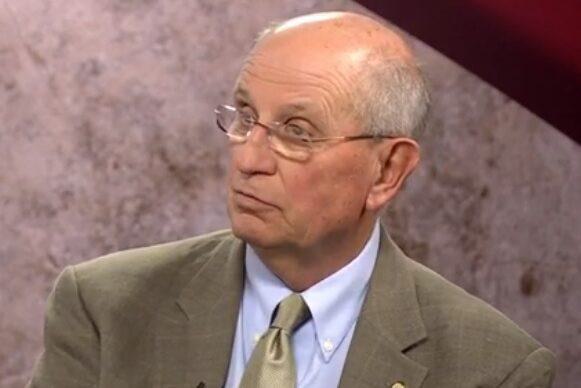During Thursday's broadcast of Alabama Public Television's "Capitol Journal," State Sen. Larry Stutts (R-Tuscumbia) discussed the State Senate's efforts to correct a potential vulnerability to Alabama's laws and constitution that threatens the practice of in-vitro fertilization after an Alabama Supreme Court ruling last month.
Alabama's high court, in its 7-2 LePage v. Mobile Infirmary Clinic, Inc. decision, ruled that parents of frozen embryos killed at an IVF clinic when an intruder tampered with a freezer may proceed with a wrongful death lawsuit against the clinic for alleged negligence.
When asked if more court challenges could come even if the Alabama Legislature provided a fix, Stutts, a practicing obstetrician-gynecologist (OB/GYN), acknowledged the possibility.
However, the Colbert County Republican lawmaker also credited the Alabama Supreme Court with getting its ruling correct.
"We very well could be," Stutts replied. "Things work their way through the court system, and in defense of that I think the Supreme Court rightly decided the issue. If we're debating over these embryos in in-vitro fertilization dying, then we have to admit they were alive. You know, what were you before your died? You were alive, and if it's alive, then what kind of life is it? What kind of protections does it deserve because it clearly has to be a human life."
"It's not potential life, or you know, someone tried to debate with me yesterday, 'Well, you know, these embryos — if we laid them right here on this ledge, they could not survive, right?'" he continued. "And I said yeah, that's true. But I said we could make exactly the same argument for if we laid a one-month-old baby on this floor, it couldn't survive if we just laid it there and left it. And I said, the only issue is either of them require temperature control and nutrition and time. So the debate to me, the debate in my mind of when life begins — it begins at conception. I'm very comfortable with defending the practice of in-vitro fertilization. I mean, I'm an OB/GYN doctor. I've done a lot of infertility stuff but referred a lot of patients for in-vitro fertilization."
"There is a right way and a wrong way to do it," Stutts added. "But if you do it the right way, then you don't have to argue over all these moral issues. The in-vitro fertilization practices that are doing it the right way — they're not trying to destroy embryos. They're trying to create embryos, and we need to realize that."
Jeff Poor is the editor in chief of 1819 News and host of "The Jeff Poor Show," heard Monday-Friday, 9 a.m.-noon on Mobile's FM Talk 106.5. To connect or comment, email jeff.poor@1819News.com or follow him on Twitter @jeff_poor.
Don't miss out! Subscribe to our newsletter and get our top stories every weekday morning.










